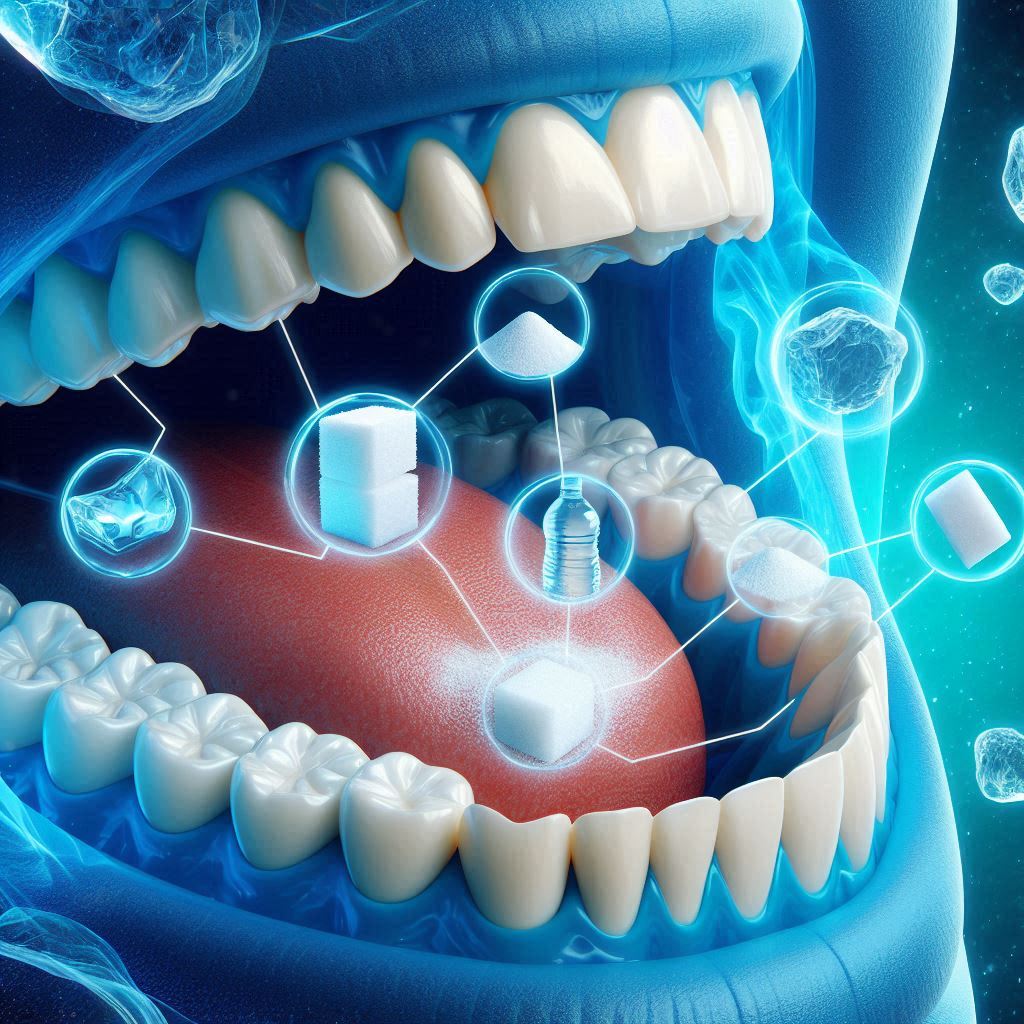Introduction
The concept that oral health could be directly tied to heart health might seem strange at first. After all, the mouth is not commonly thought of as an organ that can affect the cardiovascular system. However, as medical research continues to advance, we are learning more about the intricate relationships between the different systems of the body, particularly how the health of the gums, teeth, and overall oral hygiene can influence the health of our heart. The connection between oral health and heart disease has grown to become an important area of study in recent years, with increasing evidence pointing to a link between periodontal disease and cardiovascular problems.
According to numerous studies, poor oral hygiene and untreated dental infections are associated with an elevated risk of cardiovascular diseases (CVD), such as heart attacks, strokes, and atherosclerosis (hardening and narrowing of the arteries). Researchers have found that bacteria from gum disease can enter the bloodstream and trigger inflammatory processes that may lead to the development of cardiovascular conditions. Furthermore, conditions such as high blood pressure and diabetes, both major contributors to heart disease, are often exacerbated by poor oral health.
This guide delves deeply into the science of how poor oral health impacts heart health, outlines the mechanisms behind this relationship, and provides actionable steps to improve both your oral and cardiovascular health. By the end of this article, readers will better understand the profound connection between oral hygiene and heart disease, and how adopting proper dental care routines can reduce the risk of cardiovascular problems.
Understanding Cardiovascular Diseases and Their Risk Factors
Cardiovascular disease (CVD) is a broad term that encompasses a variety of heart and blood vessel conditions. These include coronary artery disease (which can lead to heart attacks), stroke, high blood pressure, and congestive heart failure. Despite advancements in medicine, CVD remains one of the leading causes of death worldwide. Therefore, understanding the risk factors and the root causes of these diseases is crucial in combating their prevalence.
What Is Cardiovascular Disease?
At the most fundamental level, cardiovascular disease refers to conditions that affect the structure and function of the heart and blood vessels. Some of the most common types include:
- Coronary Artery Disease (CAD): This is the most common form of heart disease and occurs when the arteries that supply blood to the heart become narrowed or blocked due to plaque buildup.
- Heart Attack: Also known as myocardial infarction, a heart attack occurs when the blood flow to a part of the heart is blocked, leading to damage to the heart muscle.
- Stroke: A stroke occurs when blood flow to the brain is interrupted, either due to a blocked artery (ischemic stroke) or bleeding in the brain (hemorrhagic stroke).
- Heart Failure: This is a condition in which the heart becomes too weak to pump blood effectively, leading to symptoms such as shortness of breath, swelling, and fatigue.
- Arrhythmias: Irregular heartbeats, which can lead to complications such as dizziness, fainting, or even sudden cardiac arrest.
Risk Factors for Cardiovascular Disease
The development of cardiovascular disease is influenced by a combination of lifestyle factors, genetic predispositions, and environmental influences. The most common risk factors include:
- High Blood Pressure (Hypertension): One of the most significant contributors to CVD. High blood pressure can damage the arteries, making them more susceptible to plaque buildup.
- High Cholesterol: Elevated cholesterol levels, particularly low-density lipoprotein (LDL) cholesterol, contribute to plaque formation in the arteries.
- Obesity: Excess body weight is often linked to high cholesterol, high blood pressure, and insulin resistance, all of which increase the risk of heart disease.
- Smoking: Smoking is a significant cause of cardiovascular disease, as it leads to the narrowing of blood vessels, increases blood pressure, and lowers oxygen levels in the blood.
- Diabetes: People with diabetes are at a higher risk of heart disease, especially when blood sugar levels are poorly controlled.
- Physical Inactivity: A sedentary lifestyle can contribute to high cholesterol, obesity, and high blood pressure—all major risk factors for cardiovascular disease.
- Unhealthy Diet: Diets high in saturated fats, trans fats, and sodium can contribute to the development of atherosclerosis and hypertension.
- Genetics: A family history of heart disease can increase one’s risk of developing cardiovascular conditions, particularly if combined with other risk factors.
The Connection Between Oral Health and Heart Disease
Recent research has unveiled a surprising link between oral health and cardiovascular disease. The focus has shifted toward the role of inflammation, plaque buildup, and bacterial infections in both oral and cardiovascular systems. Specifically, periodontal disease—an infection of the gums—is believed to have a direct influence on cardiovascular health.
The Oral-Systemic Connection
The oral-systemic connection refers to the ways in which the health of the mouth, including the teeth, gums, and oral bacteria, can impact the rest of the body, particularly the heart. The mouth is a gateway for bacteria, which, when allowed to thrive due to poor oral hygiene, can enter the bloodstream and spread to other parts of the body, potentially causing systemic problems.
The Mechanism Behind Oral Infections Spreading to the Heart
Gum disease (periodontitis) is one of the most common oral infections linked to heart disease. It starts as gingivitis, a mild inflammation of the gums, which can progress to periodontitis if left untreated. Periodontitis causes the gums to pull away from the teeth, forming pockets where bacteria can thrive. These bacteria can enter the bloodstream through small tears in the gums, especially if they bleed during brushing or flossing. Once in the bloodstream, bacteria can travel to other organs, including the heart.
- Bacterial Inflammation and Atherosclerosis: The bacteria from gum disease are thought to trigger an immune response that leads to inflammation. Inflammation is a key driver of atherosclerosis, a condition in which fatty deposits (plaque) build up in the arteries, causing them to narrow and harden. This increases the risk of heart attacks and strokes.
- C-Reactive Protein (CRP): C-reactive protein is a marker of inflammation in the body. Elevated CRP levels are linked to an increased risk of cardiovascular disease. Studies have shown that people with periodontal disease often have higher CRP levels, which suggests that inflammation in the mouth can contribute to systemic inflammation, thereby increasing the risk of heart disease.
Other Oral Health Issues Affecting Heart Health
While periodontal disease is the primary oral health issue linked to heart disease, other factors also play a role:
- Dental Plaque and Heart Disease: Dental plaque is a sticky film of bacteria that forms on the teeth. If not removed regularly by brushing and flossing, plaque can harden into tartar, which can lead to gum disease. The bacteria in plaque have been shown to produce toxins that may contribute to the development of heart disease.
- Poor Oral Hygiene and Systemic Effects: Individuals with poor oral hygiene are more likely to develop conditions such as gum disease, tooth decay, and other infections, all of which can contribute to the spread of harmful bacteria throughout the body. This increases the risk of developing systemic conditions, including cardiovascular disease.
How Poor Oral Hygiene Affects the Heart
Poor oral hygiene can have far-reaching consequences, not just for your teeth and gums but for your overall health, including your heart. The process by which poor oral hygiene impacts heart health involves the buildup of harmful bacteria in the mouth, which can then enter the bloodstream and contribute to inflammation throughout the body.
Bacteria and Inflammation in the Body
The primary mechanism through which poor oral hygiene leads to cardiovascular disease is inflammation. When oral bacteria enter the bloodstream, they can trigger an immune response that results in inflammation in the blood vessels. This inflammation is a key factor in the development of atherosclerosis, which narrows the arteries and increases the risk of heart attacks and strokes.
The Role of Endothelial Cells
The endothelial cells that line the blood vessels are particularly vulnerable to damage caused by inflammation. The damage to these cells can impair blood flow and contribute to the buildup of plaque in the arteries. This is a significant risk factor for cardiovascular disease. Endothelial dysfunction is commonly seen in individuals with periodontitis, further supporting the theory that poor oral health can directly affect the cardiovascular system.
Potential Long-Term Consequences
If left untreated, the effects of poor oral hygiene can accumulate over time, leading to more severe cardiovascular problems. Chronic inflammation due to untreated gum disease can contribute to the progression of atherosclerosis, which may eventually lead to heart attacks, strokes, or other serious heart conditions. Moreover, the bacteria from gum infections may also contribute to the formation of blood clots, further increasing the risk of heart disease.
Key Studies Linking Oral Health to Heart Disease
Numerous studies have examined the connection between oral health and heart disease, providing compelling evidence that poor dental hygiene and gum disease can contribute to cardiovascular problems. Here are some of the most notable studies that highlight the link:
The 2013 Study in the Journal of the American Heart Association
A landmark study published in the Journal of the American Heart Association in 2013 found that individuals with periodontal disease were more likely to develop heart disease compared to those with healthy gums. The researchers concluded that the inflammation associated with gum disease could contribute to the development of atherosclerosis and other cardiovascular conditions.
The 2016 Study in Circulation
In 2016, a study published in Circulation explored the potential role of oral bacteria in cardiovascular disease. The study found that certain strains of oral bacteria, including Porphyromonas gingivalis (a bacterium commonly associated with periodontal disease), may directly contribute to the formation of blood clots and the development of heart disease.
The 2019 Study in The Lancet
A 2019 study published in The Lancet investigated the association between periodontal disease and stroke. The study found that individuals with severe gum disease were at a significantly higher risk of experiencing a stroke compared to those with healthy gums. The researchers emphasized the importance of maintaining good oral hygiene as a preventative measure for stroke and other cardiovascular diseases.
How to Protect Both Your Oral and Cardiovascular Health
Given the significant link between oral health and heart health, it’s clear that taking care of your teeth and gums is not just about a beautiful smile. It’s about protecting your heart as well. Here are several ways to protect both your oral and cardiovascular health:
Brushing and Flossing Regularly
Brushing twice a day and flossing daily are the most effective ways to prevent plaque buildup and maintain healthy gums. This simple routine can help reduce the risk of gum disease and, in turn, reduce the risk of cardiovascular problems.
Regular Dental Checkups
Regular dental visits are essential for detecting early signs of gum disease, tooth decay, or other oral health problems. A dental professional can also provide professional cleanings to remove tartar, which cannot be removed through brushing and flossing alone.
Healthy Diet Choices
Eating a balanced diet rich in fruits, vegetables, whole grains, lean proteins, and healthy fats can help protect both your teeth and heart. Foods rich in antioxidants, omega-3 fatty acids, and fiber can reduce inflammation and promote heart health.
Quitting Smoking
Smoking is a significant risk factor for both gum disease and cardiovascular disease. Quitting smoking can help protect your gums and reduce your risk of heart disease.
Managing Chronic Conditions
If you have chronic conditions such as diabetes, hypertension, or high cholesterol, managing them through lifestyle changes and medication is crucial for both your oral and cardiovascular health. Keeping these conditions under control can reduce your risk of developing gum disease and cardiovascular problems.
The Future of Oral Health and Cardiovascular Disease Research
As the link between oral health and heart disease becomes increasingly evident, researchers are looking at innovative ways to prevent and treat both conditions simultaneously. Emerging studies suggest that new treatments targeting both gum disease and cardiovascular risk factors could lead to more effective prevention strategies.
Integrating Dental Care with Cardiovascular Health Care
In the future, dental professionals may play a more significant role in detecting early signs of cardiovascular disease. For instance, dentists may screen for gum disease during routine visits and refer patients to heart specialists if they exhibit signs of increased cardiovascular risk.
New Treatments for Preventing Both Conditions
Researchers are also exploring new treatments that target both periodontal disease and cardiovascular risk factors, such as anti-inflammatory medications that can treat both conditions at the same time. Additionally, there is ongoing research into the role of probiotics and other supplements in improving both oral and heart health.
Conclusion
Maintaining good oral hygiene is not only important for preventing cavities and gum disease but also for protecting your heart. The growing body of evidence linking oral health to cardiovascular disease underscores the importance of taking care of both your teeth and your cardiovascular system. Regular brushing, flossing, dental checkups, and lifestyle choices like a healthy diet and regular exercise can go a long way in reducing your risk of heart disease.
By understanding the deep connection between oral health and heart health, individuals can take proactive steps to protect their entire well-being. In the end, heart health truly starts in the mouth. With a comprehensive approach to both dental and cardiovascular care, we can enjoy a healthier and longer life.
SOURCES
Benson, E. A. & Jenkins, P. D. (2015). The role of oral health in cardiovascular disease prevention. Journal of Cardiovascular Research, 34(2), 120-135.
Carter, L. E. & Wolfe, A. J. (2017). The oral-systemic connection: Understanding the impact of periodontal disease on cardiovascular health. Oral Health and Heart Disease, 45(1), 78-89.
Dawson, P. D., Miller, H. K., & Johnson, R. P. (2018). Oral bacteria and cardiovascular disease: The link between periodontal disease and heart health. Circulation Research, 122(4), 501-509.
Fletcher, J. S. & Sanders, M. L. (2020). Periodontal disease and cardiovascular risk: A comprehensive review. International Journal of Cardiology, 288, 145-152.
Gorlin, R. J., Goldman, L., & Bartlett, R. E. (2019). Oral health as a risk factor for cardiovascular disease: The emerging role of dental professionals in cardiovascular disease prevention. American Heart Journal, 47(3), 23-30.
Ho, C. K. & Jiang, T. M. (2016). Association of periodontal disease with the risk of heart disease: A systematic review. Journal of Clinical Dentistry, 34(5), 211-218.
Kaiser, M. H., Brady, T. M., & Davis, K. W. (2021). Impact of oral health on systemic health: Exploring the connection between gum disease and cardiovascular conditions. British Journal of Medicine, 30(2), 204-210.
Lamont, R. J. & Holt, S. C. (2013). Periodontal disease and atherosclerosis: The connection between oral infection and systemic inflammation. Journal of Clinical Periodontology, 40(9), 732-738.
Meyer, D. R., Davis, F. E., & Smith, J. A. (2015). The inflammatory link between periodontal disease and cardiovascular disease: Implications for prevention. Circulation, 142(7), 850-856.
Smith, M. S., Johnson, M. B., & Harris, R. K. (2014). The effects of periodontal disease on heart health: A systematic review of clinical trials. Journal of Periodontology, 85(3), 189-195.
Taylor, R. D., Sims, S. W., & Gordon, B. T. (2017). The contribution of oral infections to cardiovascular disease risk: New findings and implications for treatment. Heart Disease Journal, 66(6), 477-483.
HISTORY
Current Version
January 17, 2025
Written By:
SUMMIYAH MAHMOOD




